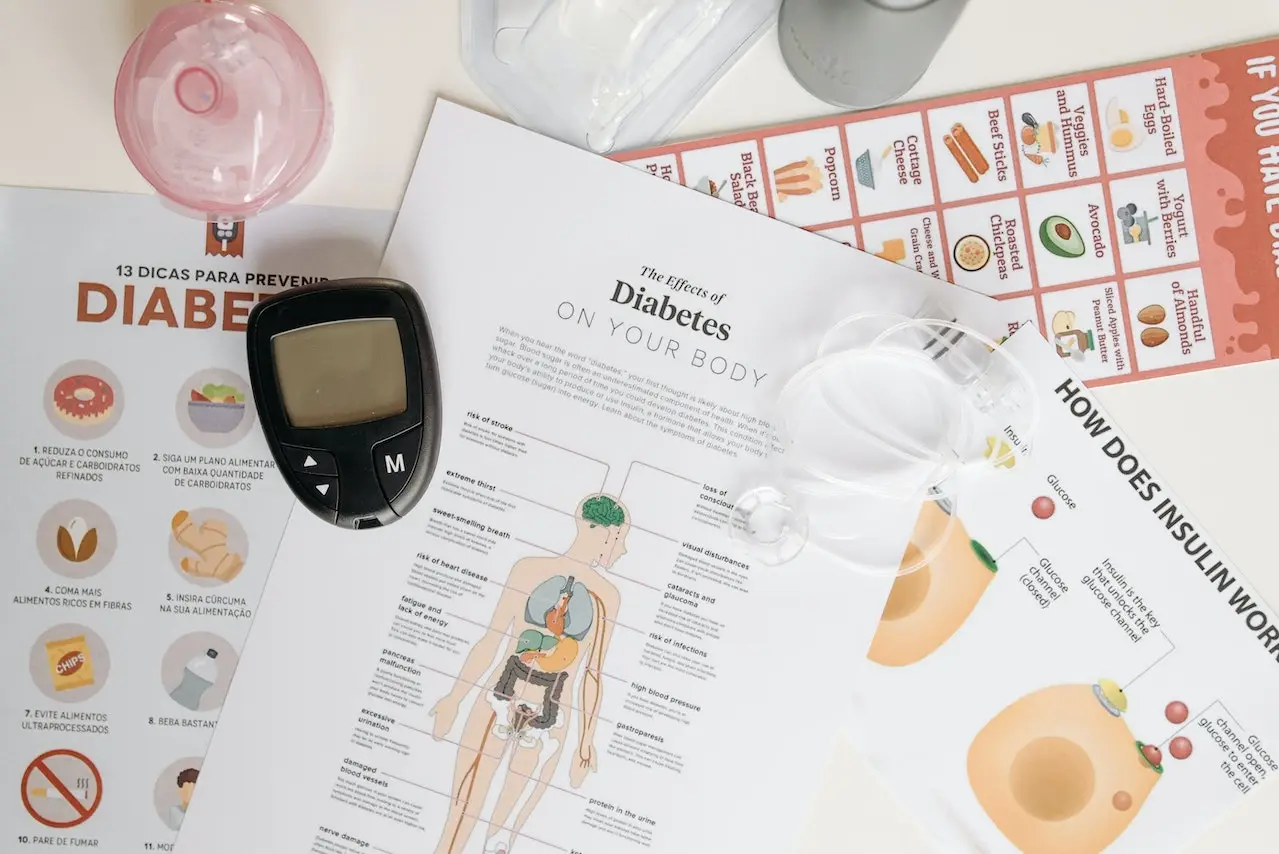- Dubai, UAE
- info@drsadiyalifestyle.com

Menu



Why Diabetes Matters: Don’t underestimate its impact. Diabetes isn’t a static condition; it’s a journey towards compromised health and diminished quality of life. Your lifestyle choices fuel its progression. Opting for healthier habits can slow down the onset of complications affecting your heart, eyes, nerves, and kidneys.
You might ask “Can I put the brakes on this progression?” The resounding answer is Yes, provided you make the right lifestyle choices. Or, perhaps you’re feeling even more hopeful and wondering, “Can I turn this journey around? Can I reclaim good health?” The answer is Yes, but there are conditions.
Let’s start by understanding the cause and progress of type 2 diabetes
Type 2 diabetes isn’t a sudden, fleeting ailment that comes and goes; rather, it’s a chronic condition that manifests due to prolonged misuse of your body over 5-10 years. It begins with the accumulation of excess fat in tissues not designed for fat storage, leading to insulin resistance. This means your body cells no longer effectively respond to insulin, the hormone responsible for transporting glucose from your bloodstream into your cells. In response, your body increases insulin production. Simultaneously, it damages insulin-producing beta cells, gradually elevating fasting and post-meal blood glucose levels. Over time, this evolves into high blood glucose – the hallmark of full-fledged type 2 diabetes.
To effectively treat insulin resistance, it’s essential to tackle the underlying cause. Weight gain is one of the strongest reasons for insulin resistance. Over the past decade, robust research has demonstrated that substantial weight loss can reverse its effects for a certain period and may even completely eliminate insulin resistance in some instances.
Using the term “diabetes reversal” might not accurately reflect the situation, as it could suggest a permanent state, even though we cannot guarantee its longevity. Our current research is insufficient to declare this a definitive and lasting remedy for type 2 diabetes. However, achieving remission could be a possibility. Remission entails maintaining blood sugar levels below the diabetes threshold, so you are not required to take diabetes medicine – this could be life-changing.
As per the 2021 consensus of International Diabetes Experts, individuals with type 2 diabetes are considered to be in remission when they consistently maintain normal blood glucose levels for three months or longer. This remission status is achieved when your HbA1c, a measure of long-term blood glucose levels, remains below 6.5% (48mmol/mol) for at least three months, all without the use of diabetes medication.
Diabetes remission can be attained by substantial weight loss through a variety of methods. These include lifestyle adjustments that modify your dietary habits and enhance daily physical activity. Additionally, medical interventions involving medications that improve blood glucose control and promote weight loss can be effective. Surgical procedures, such as bariatric surgeries designed for weight loss, also offer an option. Often, a combination of these approaches yields the most successful outcomes in achieving remission from diabetes.
What are the conditions required to reverse diabetes?
1. If your body mass index (BMI) is equal to or greater than 25 kg/m2 (overweight/obese), and you manage to safely lose a significant amount of weight, typically around 15 kg, it has been demonstrated through research that this approach is particularly effective. However, ongoing studies are currently exploring whether achieving remission from type 2 diabetes is feasible for individuals with a lower body weight as well.
2. Timely detection and proactive intervention are paramount for achieving successful remission of Type 2 diabetes. These interventions yield optimal results when implemented within the initial 6 years following diagnosis. This period constitutes a therapeutic window during which the pancreatic β-cells, responsible for insulin release, retain their functionality.
3.Rapid weight loss id demonstrated to be most effective. Robust research highlights that adopting intensive low-calorie meal plans, approximately 850 calories, often involving meal replacement beverages, holds potential to achieve this goal. Yet, achieving remission through very low-calorie meal options necessitates unwavering motivation and dedication. Moreover, the maintenance of weight loss demands a consistent commitment to enduring lifestyle changes.
4. Rapid weight loss is not advised if you are under 18, pregnant, breastfeeding or have ever been diagnosed with an eating disorder. Considering remission during these phases could not be a safe option.
5. Emerging studies have shown that a gradual weight loss approach also yields promising outcomes. Remission from type 2 diabetes can be achieved through weight loss strategies using a Mediterranean diet or a low-carbohydrate diet.
6. Weight loss achieved through bariatric surgery procedures like Roux-en-Y gastric bypass (RYGB), sleeve gastrectomy (SG), and One Anastomosis Gastric Bypass has demonstrated considerable success in both weight reduction and achieving remission, especially in the initial years following the procedure.
7.Individuals with poor glucose control, increased diabetes-related complications, advanced age, and low C-peptide levels (signifying reduced natural insulin production) have not displayed significant remission outcomes in various trials. Nevertheless, these efforts can considerably decelerate the progression towards complications affecting the eyes, heart, kidneys, and nerves.
8. People with type 1 diabetes cannot achieve diabetes remission, as the root cause lies in the beta cells’ failure to generate insulin, rather than insulin resistance. Nevertheless, researchers are diligently exploring avenues to unveil potential approaches and create innovative therapies in pursuit of this goal.
Don’t forget! That remission is not a one-off, once-and-for-all event. It needs to be maintained, because there’s always a chance that your diabetes might return. Keeping an eye on your weight, and adjusting you’re eating pattern and activity level if it creeps up again.
Even if you don’t qualify as a best suit for remission, losing weight and making the right dietary choices, moving more, ensuring quality sleep, and managing stress can undoubtedly decelerate your path towards potential complications involving the heart, eyes, nerves, and kidneys an add years of best quality of life.
So, you need to be mindful of your lifestyle choices.
References
Buse JB, Caprio S, Cefalu WT, et al.Diabetes Care. 2009.
Riddle MC, Cefalu WT, Evans PH et al. Diabetes. Diabetes Care. 2021.
Bergman, M., Buysschaert, M., Medina, J.L. et al. Nat Rev Endocrinol.2022.
Min T., Barry J.D., Stephens J.W. J. Diabetes Metab. 2015.
Moradi, M., Kabir, A., Khalili, D. et al. BMC Endocr Disord.2022.
+971528254859
Copyright © 2022 |
Powered by Digital Exponents
WhatsApp us